Udayana CENTRAL Collaborates with Satpol PP to Prevent Beginner Smokers
Lecturers of Faculty of Medicine, Udayana University who are members of the Udayana Center for NCDs, Tobacco Control and Lung Health (Udayana CENTRAL) in collaboration with the Bali Provincial Civil Service Police Unit (Satpol PP) and the Association of Indonesian Public Health Experts (IAKMI) Bali Regional Management to carry out capacity building for Satpol PP in law enforcement of Non-Smoking Area (KTR), Tuesday (12/4), with the theme "Optimizing Policy Enforcement in Health and Smoking Control in Bali" in Denpasar. This activity was also attended directly by the Deputy Dean for General Affairs and Finance, FK Unud, Dr. dr. I Made Sudarmaja, M.Kes.
Bali Regional Secretary, Dewa Made Indra said, Bali already has Bali Provincial Regulation Number 10 of 2011 concerning Non-Smoking Areas (KTR). This regulation regulates smoking in its place.
"This non-smoking area regulation does not prohibit smoking, but smoking in its place, smoking is not allowed in prohibited places. There is an area without smoking, which means there is also an area where you can smoke. Of course there are considerations why you shouldn't smoke, such as because of children," explained Dewa Indra accompanied by the Head of the Bali Provincial Satpol PP, Dewa Nyoman Rai Dharmadi.
On that occasion, Dewa Indra also appreciated the innovative steps taken by the Bali Provincial Satpol PP in the midst of budget constraints. Namely collaborating with the Faculty of Medicine, Udayana University in maintaining public health.
“To prevent novice smokers, this must be started by educating parents. Because children know something from their parents. Education starts from the family, giving children education on the dangers and the importance of smoking," he said.
Dewa Indra also appreciated the steps taken by the Bali Provincial Satpol PP in enforcing regional regulations and regional regulations that no longer use the old methods. However, it is more humane and uses a humane approach.
“Nowadays there is no need for a formalistic and persuasive approach. We must use a more humanist approach. Because the community can actually be educated in a better way. Violation is not necessarily understood as a delinquency, not necessarily. It could be because they don't know, there is a problem," he said.
Meanwhile, Kasat Dewa Dharmadi added that his party would order the local KTR regulations throughout Bali. This regional regulation has existed for a long time, but its implementation has not been optimal in terms of the prohibition of smoking-free areas. Even cigarette advertisements are still on the public streets.
“We have to be consistent both at the province and district/city. Because now there are no cigarette advertisements outside the room," he said.
He explained that this enforcement will be implemented in Bali, especially in welcoming the G20 Summit. Moreover, the issue raised in the world event is to create a clean and healthy environment. "So in welcoming the G20 Summit, we will soon curb the cigarette advertisements that are scattered on the streets. That's not allowed, it's illegal advertisements on the streets," he explained.
Dewa Dharmadi confirmed that he was ready to suppress cigarette billboards. In addition, strict sanctions will also be applied if they stubbornly do not heed the order to be carried out. "Of course the sanctions are in accordance with what is stated in the KTR Regional Regulation. However, according to the direction of the Regional Secretary, we are taking a humanistic approach," he said.
Meanwhile, the Coordinator of the Bachelor of Public Health Study Program, Faculty of Medicine, Udayana University, who is also the Chair of Udayana CENTRAL, dr. Putu Ayu Swandewi Astuti conveyed that the implementation of the Regional Regulation on KTR is very important to reduce exposure to passive smoking, so as to avoid negative impacts.
She added that cigarettes are also a source of poverty. From the 2018 BPS survey, cigarettes are the second highest expenditure after rice. Especially in the poor group. "We know that the prevalence of smoking is highest in the poor and low-educated groups, then most of the expenditure is on buying cigarettes so that it has an economic and health impact on family members," she explained.
On that occasion, Ayu Swandewi also mentioned electronic cigarettes which are being loved by teenagers. She said, from various studies, the dangers of electronic cigarettes are increasing. "There's a lot of evidence that it's not safe. Because there is nicotine that causes dependence, then there are additional ingredients that are not safe to inhale," she explained.
She gave an example in America, there have been dozens of teenagers suffering from Evali disease, an acute and severe respiratory disorder. "Besides the risk of exploding, one more drug. Because the liquid can be adjusted by itself, then you can mix it yourself,” he said.
She emphasized that e-cigarettes and conventional cigarettes are equally dangerous. “Sometimes people say that electronic smoking is to stop conventional smoking, so if you want to quit, you should not change. Stop not replace. So quit not switch. So if you want to stop, stop, and not change," she said.
The event also presented the Chairman of the Alliance of Regents/Mayors Care for KTR throughout Indonesia, Nyoman Suwirta who is also the Regent of Klungkung as a speaker. The regent of Bumi Serombotan was presented because he had carried out and succeeded in controlling cigarettes in his district. Firmly, Suwirta eliminated cigarette advertisements.
He reasoned, there is still a chance to get PAD from other sectors. Such as income from LED rental, billboard slots, and other sectors. "If there are others, why do we have to sacrifice our people," said Suwirta.
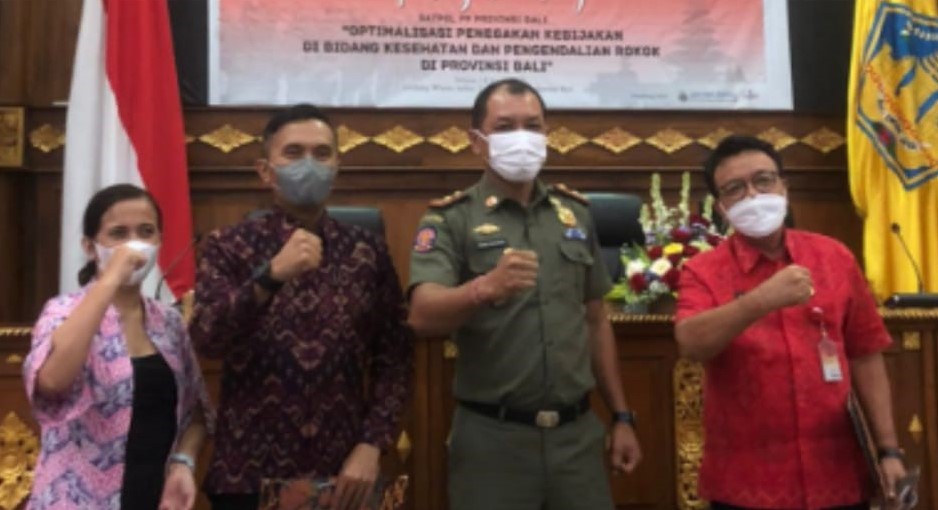
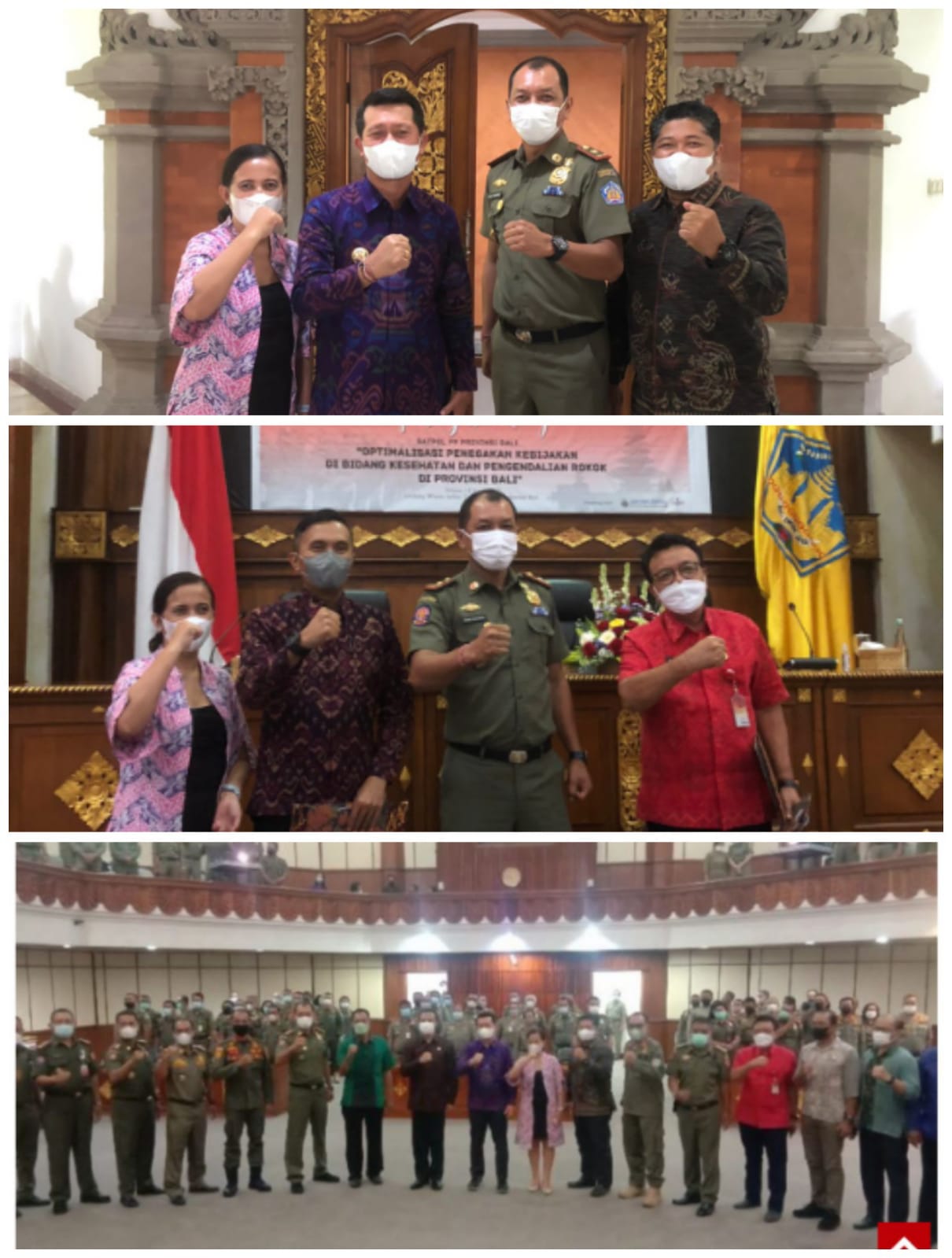
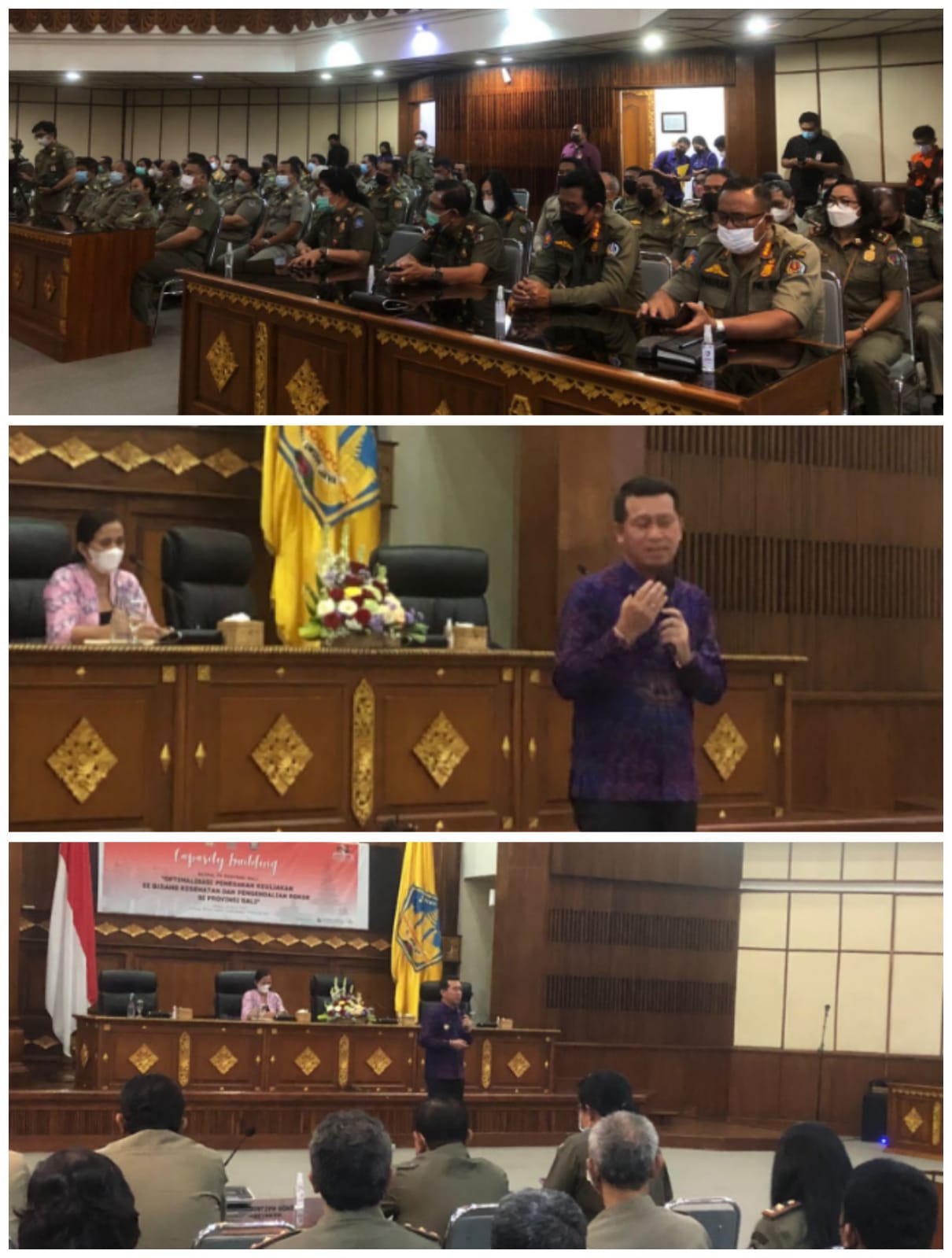

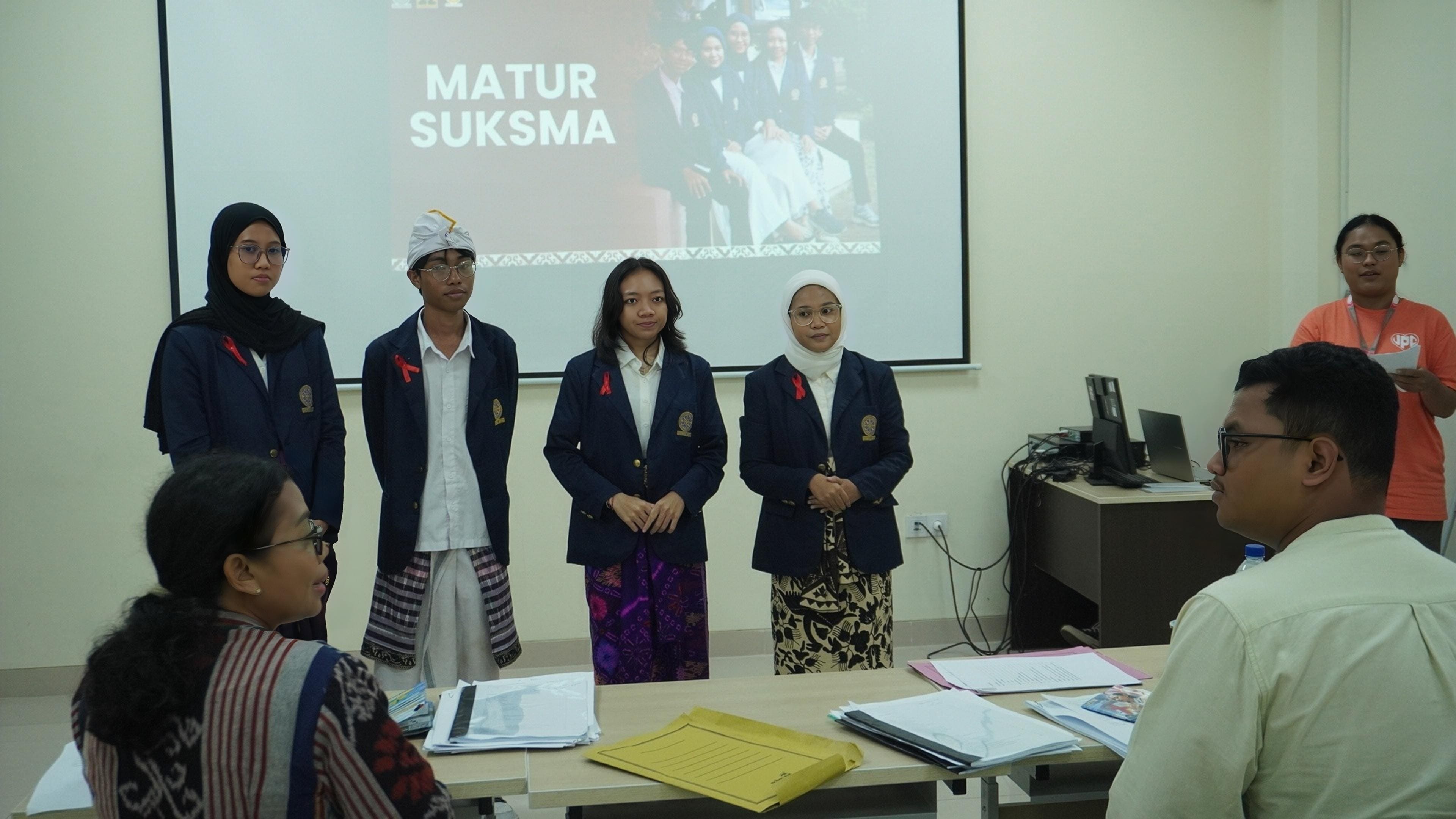
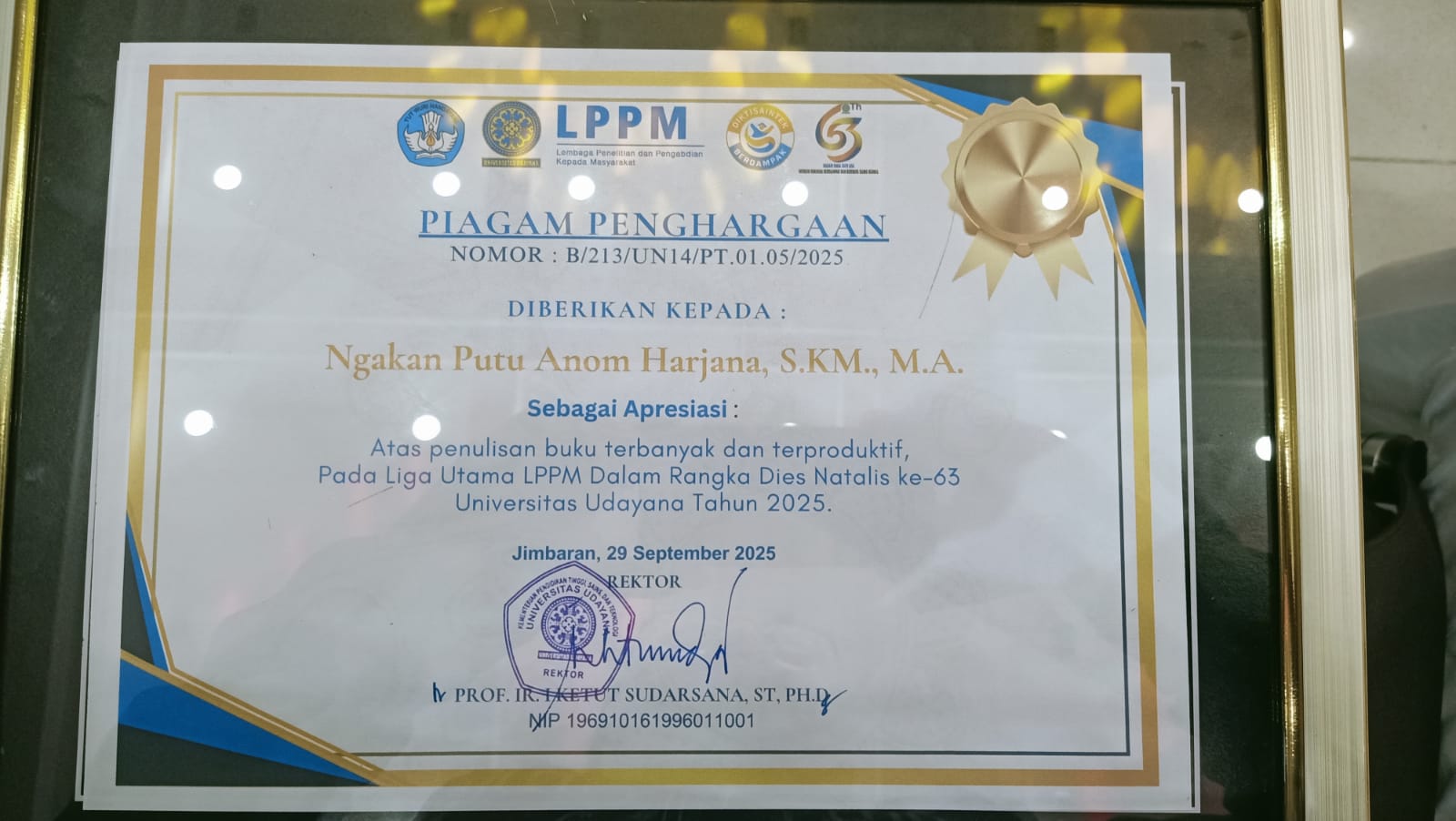
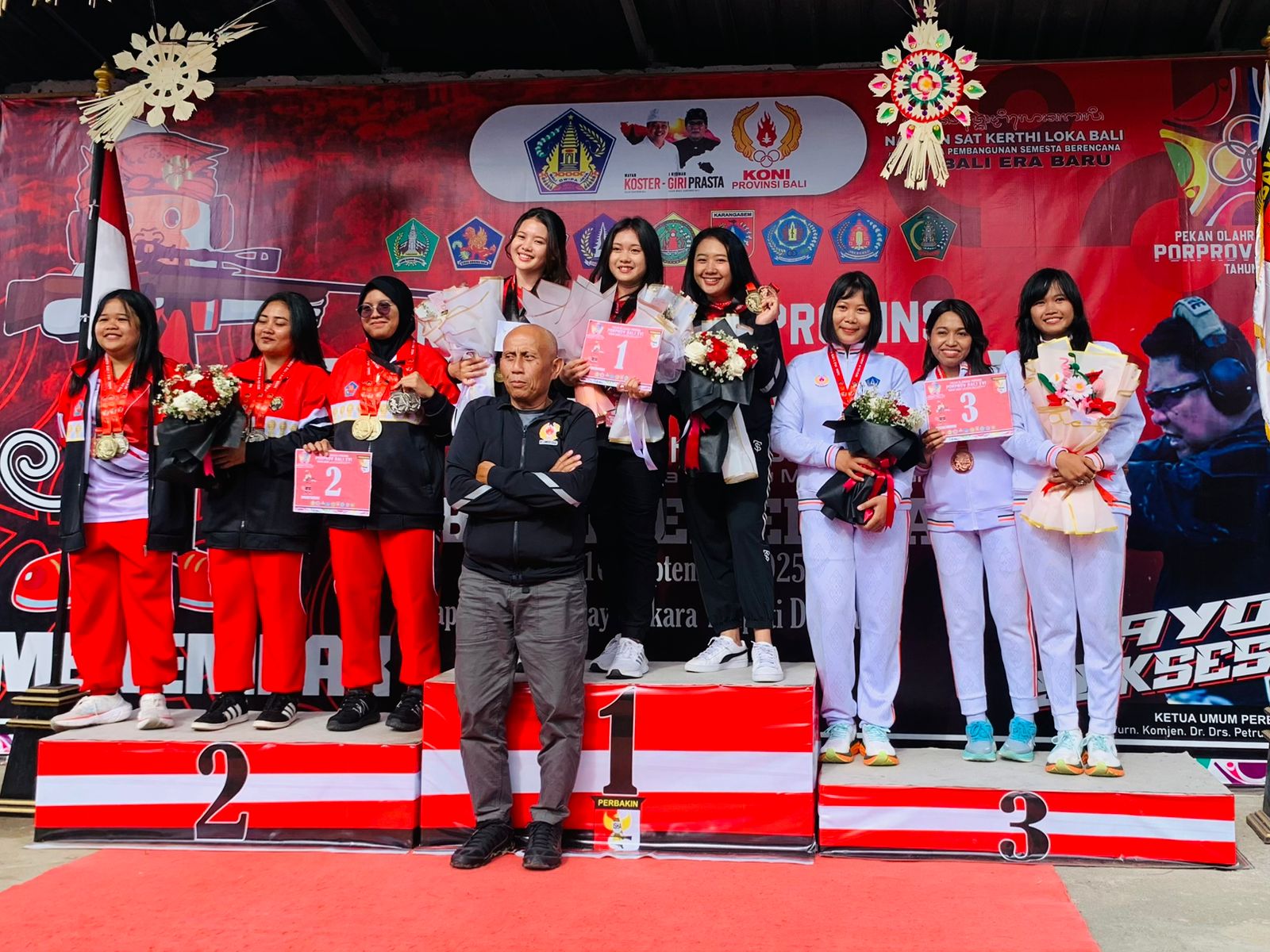
FACULTY OF MEDICINE, UDAYANA UNIVERSITY